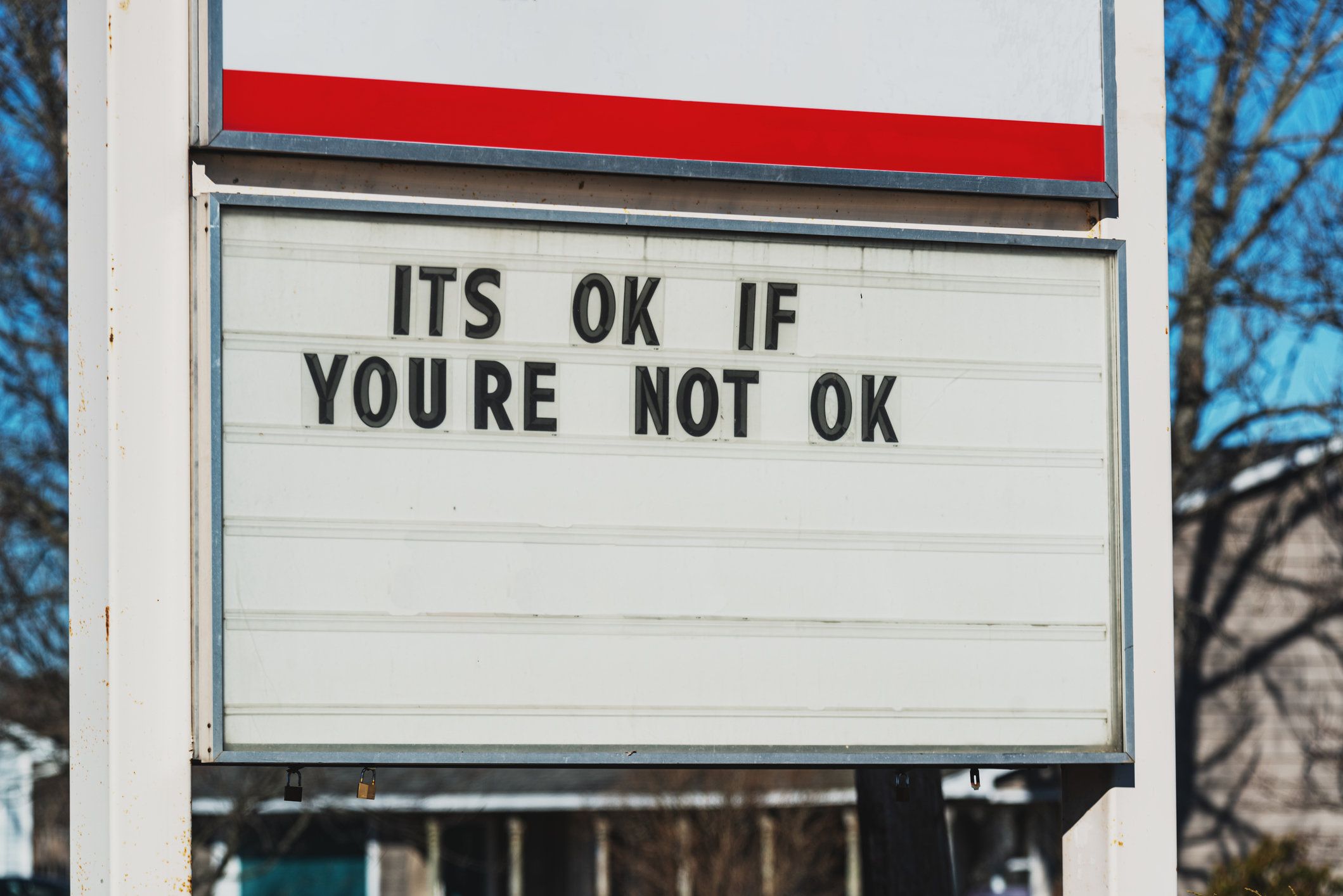On a recent Houseparty call with my three best friends, I burst into tears. "I'm stressed about everything," I sobbed, surprising myself. "I think I'm going COVID crazy."
Our calls are usually a hoot, but we were all feeling spent. Jessi's husband had had heart surgery, and no one could visit him because of COVID-19 restrictions. Katie is a flight attendant who may be furloughed at any time. Erica is an infectious disease nurse — and teacher, now that her 8-year-old is learning from home.
Our brains are on a constant loop of: Virus. Family. Safety. Masks. Mail-in voting. Racial injustice. Health care. Social distancing. Food. Money. Work. Plastic never breaks down. Repeat.
Experts say burnout is what happens when you've reached your limits mentally, emotionally and physically. Most of us are already there: In a recent poll, 53% of adults surveyed said their mental health was negatively affected by pandemic-related stress — up from 32% in March.
Stressed out or burned out?
Everyone feels overwhelmed from time to time, but the mental and physical consequences of prolonged stress can lead to serious health problems including heart disease, high blood pressure and obesity.
Burnout — the chronic state of physical or emotional exhaustion that involves a sense of reduced accomplishment and loss of personal identity — is a direct result of excessive, prolonged stress.
The scary part is that you may not even know you're on the verge of burnout. Common symptoms of stress include headaches, muscle pain and insomnia — which can be downplayed or overlooked because, well, you're stressed out.
According to Lori Gordon-Michaeli, LCSW, who specializes in experiential psychotherapy, stress management is not an option — it's a necessity.
"Stress creates energy in the body and the mind, so it's important to do something both mental and physical to remove the energy every day — or at least on a weekly basis," she explained. "Otherwise you can have all kinds of things besides the anxiety, depression, racing thoughts or overthinking — it can cause everything from bad decision-making to physical illness."
Research showed a strong link between social isolation and poor mental and cardiovascular health even before the pandemic. So, what can we do to stay mentally fit when we're stuck at home?
If you have access to the outdoors, something as simple as a 15-minute walk around the block can make a big difference, according to Gordon-Michaeli. But any physical activity you do, such as yoga, dance or lifting weights is going to have a positive impact on your mental and physical health.
Another good way to reduce stress is to belt out your best Lady Gaga. A 2016 study linked singing to decreased levels of the stress hormone cortisol in cancer patients. Earlier studies also showed that music can reduce stress among surgical patients.
Dealing with burnout
Today, women are more than twice as likely as men to experience symptoms of stress and burnout due to the pandemic.
"It is feeling like there is an obstacle in front of you that you can't overcome because you're so overwhelmed," Gordon-Michaeli said. "The best thing to do is to acknowledge that it's ok. Give yourself permission to feel burned out," she said, adding that it will help remove the resistance.
Gordon-Michaeli recommends taking a day off to deal with feeling burned out. Distract yourself with a fun television show or movie; the point is to take a break from thinking by occupying your mind with an activity and breaking that link to negative thoughts.
After you take that day, Gordon-Michaeli recommends incorporating stress management and rearranging your time to ensure that you make the time to rest — because if you don't, your body and brain will demand it.
Another tip: Make plans to do something that excites you. "When you're burned out, you need to have something to look forward to," said Gordon-Michaeli.
Find your happy place
Businesses are starting to reopen, but many of us are still working from home or dealing with the uncertainty of returning to work.
A recent study found that the multiple stresses people are undergoing from COVID-19 are likely to have future ramifications such as burnout and stress-related absenteeism.
It's crucial to be proactive about your mental health even if you are not feeling symptoms.
Gordon-Michaeli said rethinking your work routine can help avoid burnout. If you can, designate one room that is just for work, and do not enter that room unless you're at work. For those who don't have that luxury, after you've dressed for work, get in your car and drive around the block. When you re-enter your home, consider yourself to be at work. At the end of the day, close up shop, get in your car, and drive around the block on your way home.
"It is a psychological thing to set your brain up to understand that you're at work . . ." said Gordon-Michaeli. "And when you leave, and you're coming home, you can leave the workday behind you and you don't mix the two."
For those who are really struggling with negative thinking, Gordon-Michaeli recommends adding a positive to every negative thought. So, you may think, I'm stuck at home. Follow up with, At least I'm healthy. (However begrudgingly.) "It neutralizes the negative thinking a little bit," she said.
And if you're struggling with stress management or awareness exercises, think of your days as 24 hours and anything beyond that is not in your reality. "Take care of today and tomorrow will take care of itself," said Gordon-Michaeli. "For most people that helps minimize worry."


